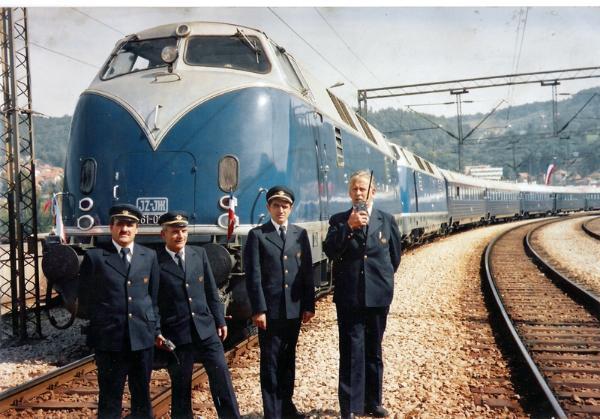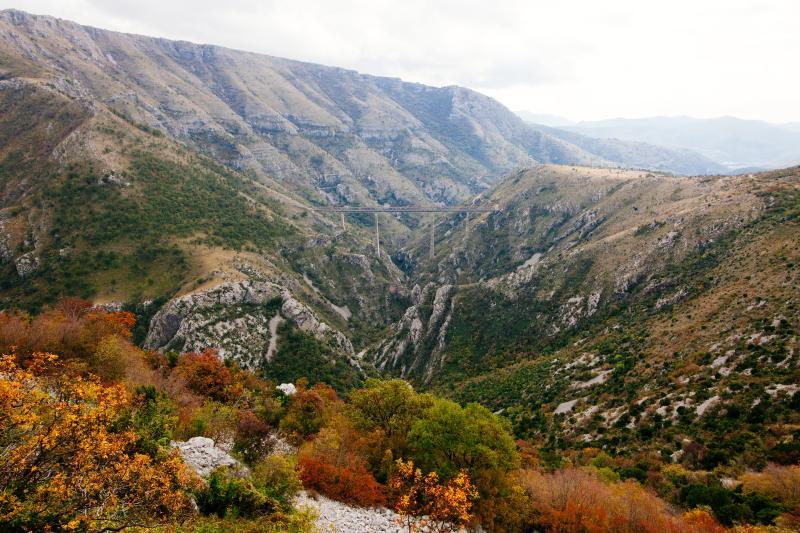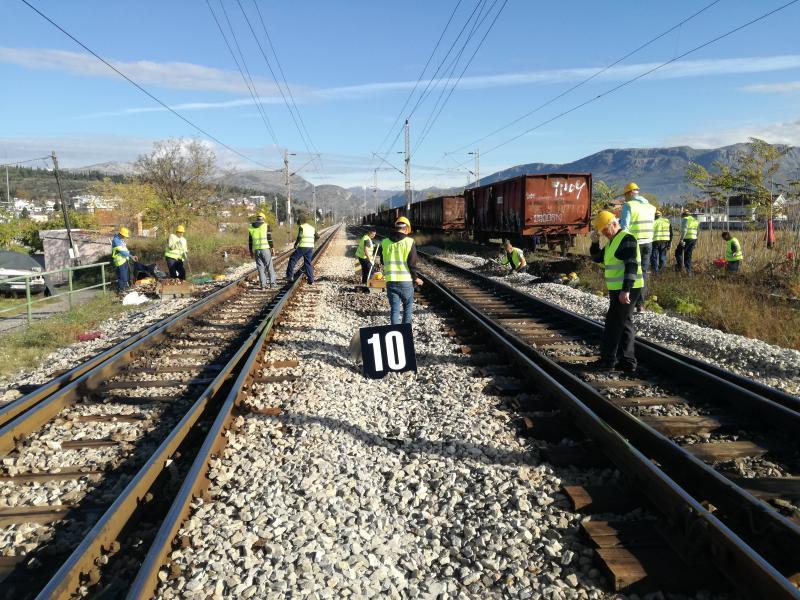The Montenegro railway upgrade is the first in 40 years
Lucija Filipović takes the train almost every weekend back to her hometown of Nikšić from Podgorica, Montenegro’s capital, where she works. “I love taking the train. I take my family to the seaside every summer. But, unfortunately you can see that there are fewer people on the trains. The Montenegrins have lost trust in railway transport.”
Montenegro's railway used to be one of its big accomplishments. It was the largest and most expensive infrastructure project in the former Yugoslav federation. But now it has fallen into decay. With the European Investment Bank's help, the railway plans a comeback. Last year, the EIB approved a EUR 20 million loan to rehabilitate the line from Bar to Vrbnica on Serbia's border. The loan will be combined with the first investment grant from EU funds and the Western Balkans Investment Framework (WBIF) in Montenegro. It will also contribute to the achievement of the Bank’s Resilience Initiative objectives.
Restarting a state-of-the-art network
When it opened in 1976, it was a state-of-the-art railway, as modern and comfortable as any other rail network in the world. It’s also one of the most beautiful trips in Europe, connecting Serbia’s capital Belgrade with Montenegro's main seaport, Bar in the southwest.

Opening of the Belgrade-Bar railway, 1976
The first train to make the 167 kilometre journey was the Blue Train, the luxury transport of then Yugoslav leader Josip Broz Tito, who entertained foreign dignitaries and royalty on board, including Queen Elizabeth II and the former Ethiopian emperor Haile Selassie.
Constant underfunding left the railway with big problems, as early as the 1990s. A trip across the railway that once took seven hours now lasts nearly 11. The train has to slow down often because of poor tracks and infrastructure. The Montenegrin part of the railway has suffered extensively from lack of maintenance. The number of passengers dropped from a peak of almost 2 million in 1987 to 1.2 million in 2016. Freight decreased from almost 4 million tonnes to 1.4 million.
Montenegro railway upgrades into the future
That’s why the EU funds are so important. “The grant is worth EUR 20 million, which means that almost 90% of the total EUR 45 million cost of the project is covered by the EU budget,” says Dubravka Nègre, the EIB's regional representative for the Western Balkans.
The loans and grants are intended to prepare Montenegro for EU membership. As Johannes Hahn, the European commissioner for enlargement, said in a visit to Montenegro in February, "The aim is to support Western Balkan countries. The EU invests in the development of future members."
A sight to behold, a struggle to maintain
The Montenegrin railway is famous for its scenic route that winds through the picturesque Morača River Canyon. The line has the highest railway bridge in Europe, the Mala Rijeka Viaduct. This was the highest railway bridge in the world, until it was surpassed by a Chinese bridge in 2001.

The highest railway bridge in Europe, the Mala Rijeka Viaduct
About one-third of the Montenegrin part of the line is in a tunnel or on a viaduct, which makes the route one of the most difficult in Europe to maintain. The repairs and upgrades will not be easy.
“The project includes five components: a new signalling system in the Podgorica railway station, reconstruction of key slopes, bridges and tunnels, as well as supervision of all of the components,” says Filipović, who is an assistant executive director at Railway Infrastructure of Montenegro, the company handling the maintenance.

Works in progress
When the project is done, speed restrictions will be lifted and the infrastructure will be more reliable, officials say. Filipović says the signalling system that will be replaced has been used since the railway opened 40 years ago. “Imagine going straight from a first-generation mobile phone to a smartphone – this change is going to be like that,” she says, referring to the signalling. It will also be a lot safer.
A train to the EU
The project will create 1 000 jobs in Montenegro during the repairs. It also will improve trade links, primarily with Serbia and Romania, and help tourism. The new railway will help the expansion of Bar harbour, which expects trade to increase from the current 1.2 million tonnes to over 2 million tonnes in the coming years, Nègre says.
“By investing in the improvement of railway connections, we contribute to safer, cleaner and faster transport links that will connect the people of this country with their neighbours and the European Union.”
